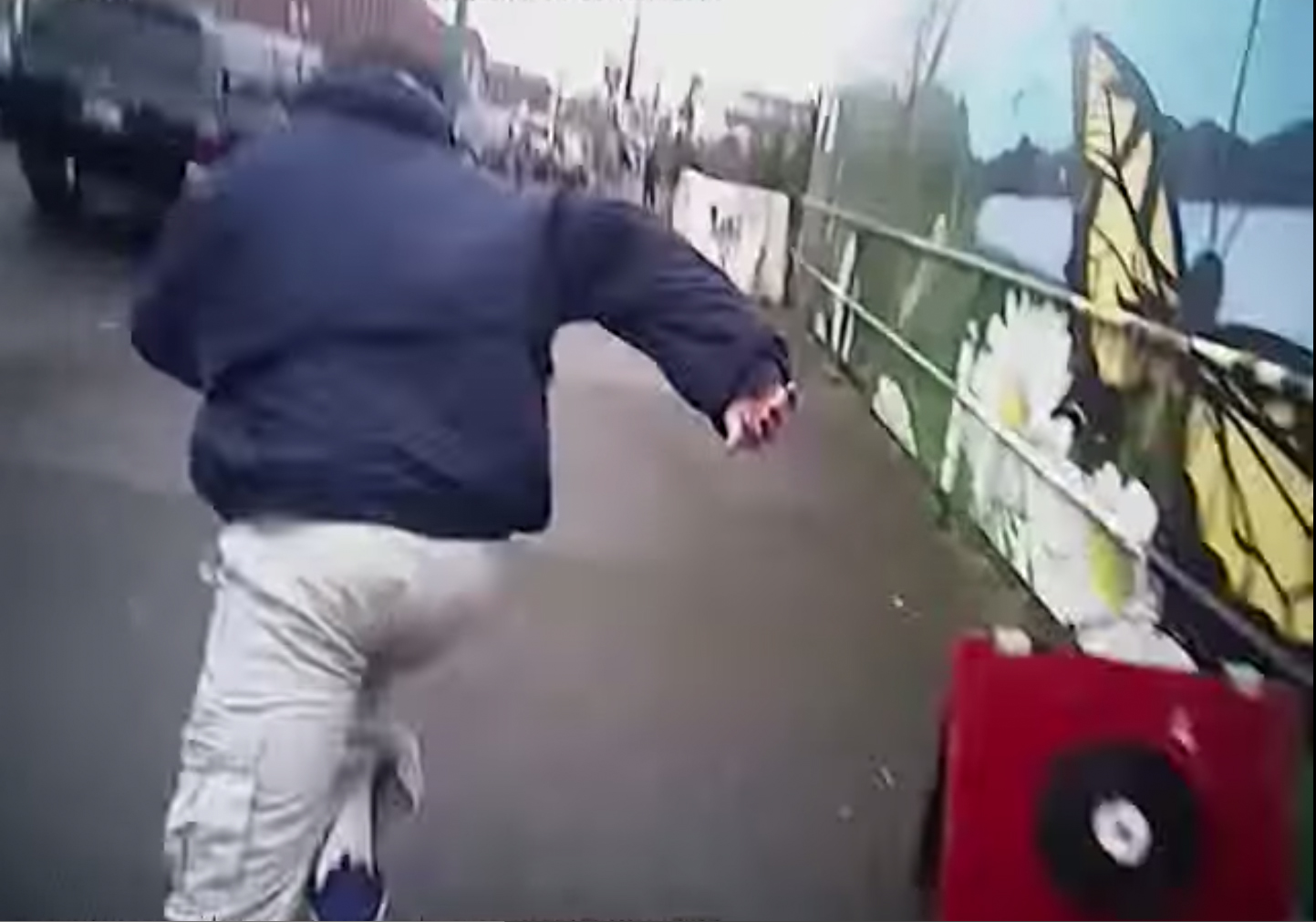Following enormous interest in police body cameras in the wake of explosive officer-involved killings in Ferguson and elsewhere, the Seattle Police Department late Friday released its draft policy for using such cameras in a pilot project slated to begin later this month. Approval from the court-appointed team monitoring SPD’s settlement with the DOJ is expected to come down any minute. In the mean time, the policy is getting a mixed response.
Timothy A. Clemans, the young programmer who has turned into a dogged police records activist, tweeted today that he thinks the policy is “way better” that those implemented in other cities. Elaborating to Seattle Weekly, he praises the policy’s protections for privacy as well as measures he thinks will increase accountability and transparency.
In sharp contrast, Jared Friend, director of the ACLU of Washington’s technology and liberty program, tells SW that the policy is riddled with “ambiguity” and “broad” exceptions.
Why such a different response? The first thing you have to realize is that the body cameras will not be on all the time. The policy instructs officers to refrain from filming “in places where a heightened expectation of privacy exists, such as restrooms, jails, or hospitals.” On top of that, officers must ask for consent before recording in homes or “private areas not open to the public.” If someone says no, officers must turn their cameras off, according to the policy.
These are privacy protections that Clemans likes. He notes that filming inside homes is a “huge issue” given that these videos may ultimately be released to the public. Since he has been requesting, receiving and then posting online large numbers of dashboard and body-cam videos from around the state, he knows first hand how embarrassing that footage can be. He says he posted one body-cam video from Spokane without looking at it. Then he heard from a viewer that one frame of the video, taken inside someone’s home, shows a sex toy.
Clemans also points out that the policy instructs officers to flag videos with sensitive information, like images of victims and those requesting non-disclosure, making it easier to know which videos need redacting and which can be passed on immediately to the public.
On a more sober note, Seattle Police Officers Guild president Ron Smith recalls being called to a home, some 20 years ago, where a woman had died. Before he arrived, he says, “a cat ate half her face off.” That shouldn’t be on the Internet for all to see, he says.
It’s not just those encounters that might escape the camera, though. The policy allows room for officer discretion. It notes, for instance, that “circumstances” might prevent recording at the “beginning of an event.” While it also instructs the officer to “begin recording as soon as practical,” Friend says this gives rogue officers a ready excuse. “It becomes easy to say, ‘It was impractical. I didn’t feel safe,’ ” Friend says. The policy also acknowledges that some officers might stop recording in the middle of an incident, but says that these officers must later document their reasons for that decision.
What’s more, the policy delineates what a camera-worthy incident is. It lists quite a few– including responses to 911 calls, arrests and so-called “Terry stops,” where officers claim “reasonable suspicion” to stop someone—but in doing so suggests that body cameras will be off until one of these triggers occurs. “My understanding is that the default will be off,” says SPD spokesperson Sean Whitcomb.
That’s not good enough for the local ACLU, which would like the default to be on—and the cameras turned off for only a few narrow exceptions, namely officer breaks and trips to the bathroom. (To deal with privacy issues, the ACLU suggests making videos public only in cases of alleged officer misconduct.)
Friend says this would prevent situations like what happened in Spokane last month. An officer with a body camera was at the scene of a shooting by another officer—exactly the sort of incident these cameras are meant to capture so that the footage can answer possible questions about excessive force–but the camera was off. The temptation for an officer to turn off the camera in compromising situations is furthered, Friend argues, by the fact that the policy stipulates that no officer will be disciplined for doing so. That’s something that SPD agreed to in negotiations with SPOG, although president Smith says he’s open to discipline when negotiating a permanent policy if the pilot is judged successful.
Asked about these concerns, SPD’s Whitcomb stresses this is just a pilot. Given long delays in getting it started, he says, “it’s important to start moving forward.”








